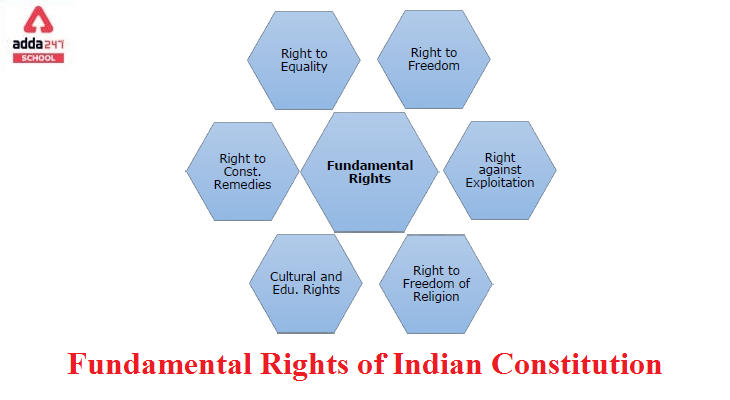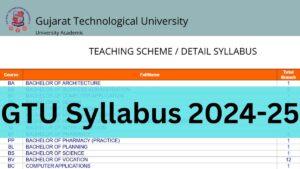Table of Contents
Fundamental Rights of Indian Constitution
Fundamental Rights of Indian Constitution list is available here. Fundamental rights are a set of rights that have a high level of protection against infringement. These rights are either expressly stated in the Constitution or have been established through the Due Process of Law. Fundamental rights in India are the basic human rights guaranteed to all people of India as established in the Indian Constitution and are provided by Part III of the Indian Constitution.
The Indian constitution recognises six essential rights:
- The right to equality (Articles 14-18)
- the right to freedom (Articles 19-22)
- The right against exploitation (Articles 23-24)
- The right to freedom of religion (Articles 25-28)
- Cultural and educational rights (Articles 29-30)
- Right to constitutional remedies (Article 32 and 226)
11 Fundamental Rights and duties of Indian Constitution
1. Fundamental Rights: Right To Equality
One of the most important provisions in the Constitution is the right to equality. It is enshrined in Articles 14–16, which cover the general principles of equality before the law and non-discrimination, and Articles 17–18, which cover the philosophy of social equality in greater depth.
Article 14 ensures that all people living in India are treated equally before the law and are afforded equal protection under the law. This entails subjecting all people to the authority of the law on an equal footing, as well as treating people in similar situations equally.
Discrimination on the basis of religion, race, caste, sex, place of birth, or any combination of these factors is prohibited under Article 15.
Article 16 provides equal opportunity in public employment and prohibits the government from discriminating against anyone in the workplace based solely on religion, race, caste, sex, descent, place of birth, place of residency, or any combination of these factors.
Untouchability in any form is outlawed by Article 17, which makes it a criminal offence.
Article 18 forbids the state from bestowing any titles other than military or academic honours, and Indian citizens are not permitted to accept titles bestowed by other countries.
2. Fundamental Rights: Right To Freedom
Articles 19 to 22 of the Constitution cover the right to freedom, with the goal of ensuring individual rights that the framers of the Constitution deemed important. These Articles also include specific constraints that the state may put on human liberty under certain conditions.
Articles 20–22 ensure that the freedoms provided by Article 19 are preserved.
3. Fundamental Rights: Right Against Exploitation
Articles 23–24 of the Universal Declaration of Human Rights contain provisions to prevent individuals or the state from exploiting the weakest parts of society.
Human trafficking is prohibited under Article 23, and forced labour or any act of forcing a person to work without pay if he was legally entitled to not work or receive recompense for it is also prohibited. It does, however, allow the state to enforce mandatory public services, such as conscription and community service.
Children under the age of 14 are not allowed to work in factories, mines, or other dangerous jobs, according to Article 24.
4. Fundamental Rights: Right to Freedom
Articles 25–28 cover the right to freedom of religion, which assures religious freedom for all people and a secular state in India. There is no official state religion, according to the Constitution, and the government is expected to respect all religions equally, impartially, and neutrally.
Article 25 ensures everyone’s right to religious freedom, including the right to preach, practise, and propagate any religion they want. This right, however, is limited by public order, morality, and health, as well as the State’s ability to implement social welfare and reform measures.
Article 26 allows all religious denominations and sects to manage their own business in issues of religion, establish their own institutions for charitable or religious purposes, and possess, acquire, and administer property in accordance with the law, subject to public order, morality, and health.
No one can be forced to pay taxes in order to promote a specific religion or religious institution, according to Article 27.
5. Fundamental Rights: Cultural And Educational Rights
Articles 29 and 30 define cultural and educational rights as ways to protect the rights of cultural, linguistic, and religious minorities by allowing them to preserve their legacy while also protecting them from discrimination.
6. Fundamental Rights: Right To Constitutional Remedies
The Supreme Court is designated by the Constitution as the defender of fundamental rights, and Article 32 provides a guaranteed remedy, in the form of a Fundamental Right, for the enforcement of all other Fundamental Rights.


 MBA HR Syllabus 2025 Out, Check MBA HR S...
MBA HR Syllabus 2025 Out, Check MBA HR S...
 NATA Syllabus 2025, Check Subject Wise D...
NATA Syllabus 2025, Check Subject Wise D...
 GTU Syllabus 2024-25 Out, Download Lates...
GTU Syllabus 2024-25 Out, Download Lates...































